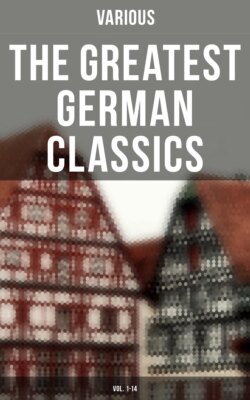Читать книгу The Greatest German Classics (Vol. 1-14) - Various - Страница 1500
На сайте Литреса книга снята с продажи.
POETRY
ОглавлениеTable of Contents
Although Winckelmann in reading the ancient authors paid great attention to the poets, an exact examination of his studies and of the course of his life reveals no particular inclination to poetry; on the contrary, an aversion occasionally appears. His preference for the old and accustomed Lutheran church hymns and his desire to possess an uncensored song book of this kind in Rome reveals the typical and sturdy German, but not the friend of poetry.
The works of the poets of past ages appear to have interested him at first as documents of ancient languages and literature, later as witnesses for the fine arts. It is all the more wonderful and gratifying when he himself appears as a poet, as an able, unmistakable one, in his description of statues and in almost all of his later writings. He sees with his eyes, he grasps with his mind, works indescribable, and yet he feels an irresistible impulse to master them by the spoken and the written word. The perfect master-work, the idea in which it had its origin, the emotion that was awakened in him in beholding it, he wishes to impart to the hearer or the reader. Reviewing the array of his aptitudes, he finds himself compelled to seize upon the most powerful and dignified expression at his command. He is compelled to be a poet, whatever he may think, whether he wishes or not.
